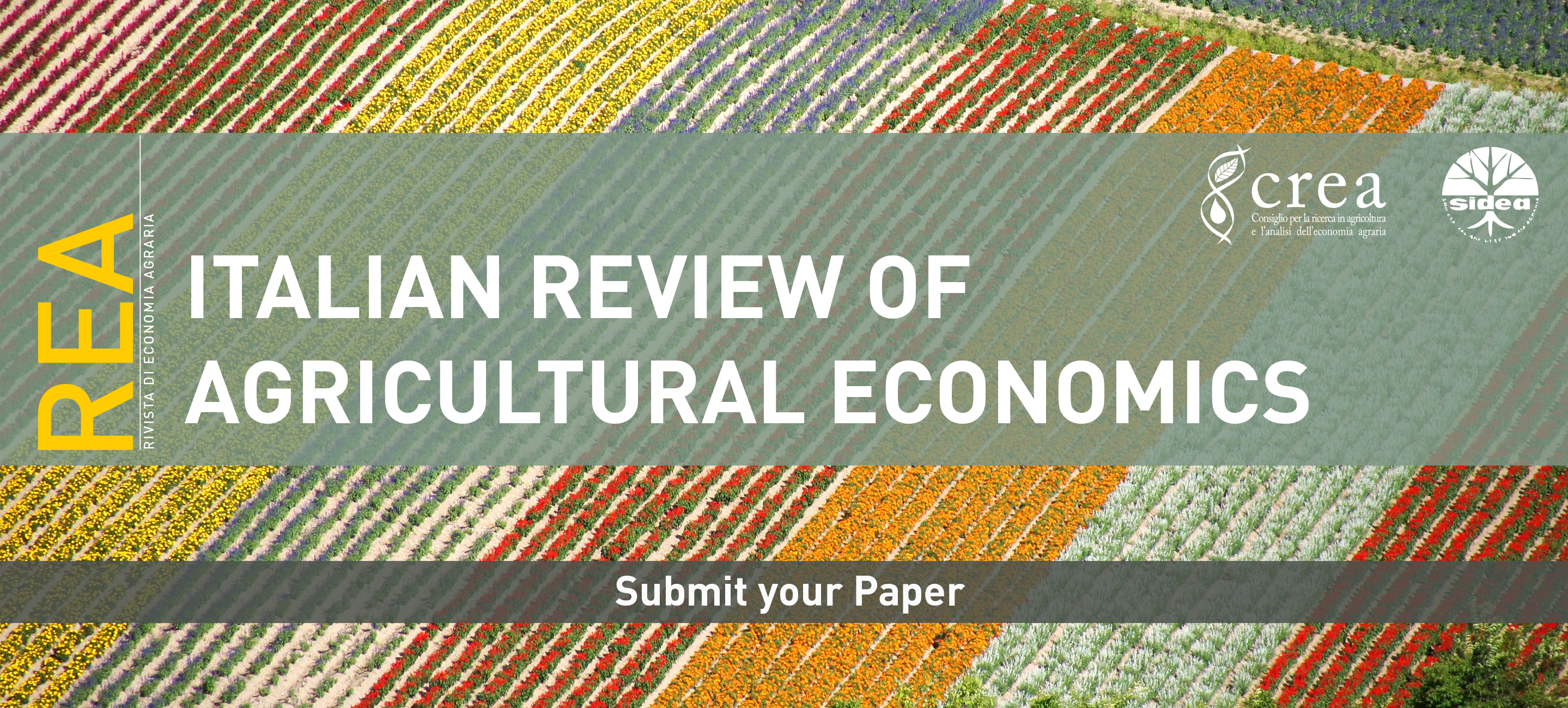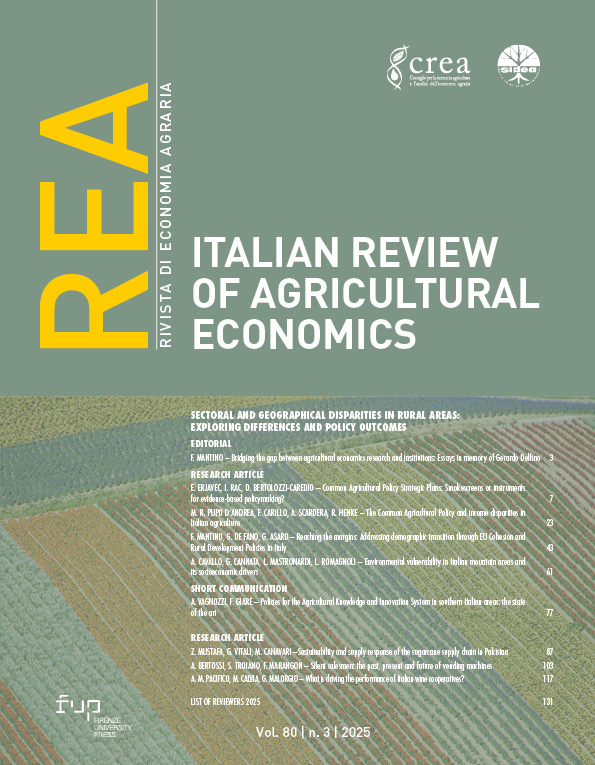About
REA IS INDEXED IN SCOPUS AND RANKED AS FASCIA A JOURNAL
The Italian Review of Agricultural Economics (REA) is an international peer-reviewed open access journal published on behalf of the Council for Agricultural Research and Economics (CREA) and the Italian Society of Agricultural Economics (SIDEA) since 1946. With its more than 70 years of existence, the Italian Review of Agricultural Economics is a distinguished place for the analysis, research and debates on issues related to agricultural economics and policy in its broadest sense, from food production and consumption to land use and the environment, from forestry and fisheries to rural communities.
ISSN 0035-6190 (print)
ISSN 2281-1559 (online)
ISSN 2281-1559 (online)
Editor-in-Chief:
Pietro Pulina, Department AGRARIA - University of Sassari, Italy
REA is indexed in:


![]()
![]()
Current IssueVol 80, No 3 (2025): Sectoral and geographical disparities in rural areas: Exploring differences and policy outcomes
Published February 17, 2026
Issue Description
The Special Issue focuses on the persistent sectoral and territorial disparities that characterise rural areas, and on the role of European Union policies in addressing these challenges. It honours the intellectual legacy of Gerardo Delfino, whose ideas, energy, and constant commitment to strengthening the dialogue between scientific research and the institutions shaping agricultural and rural policy have left a lasting mark on the field.


